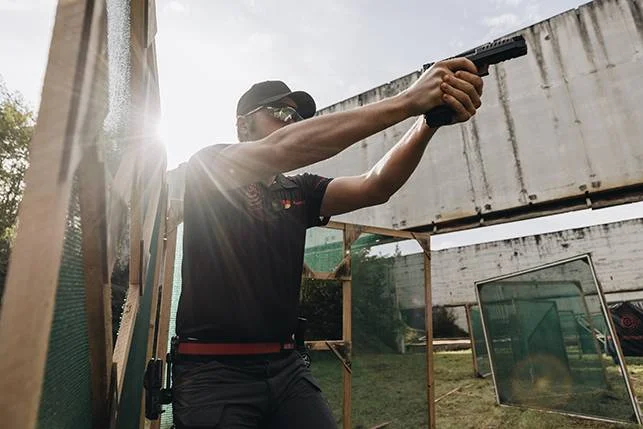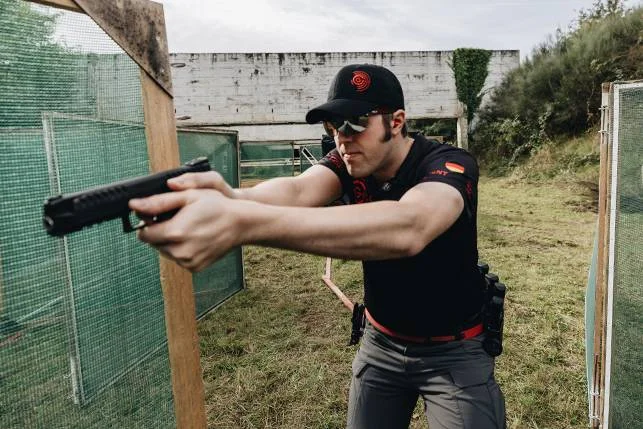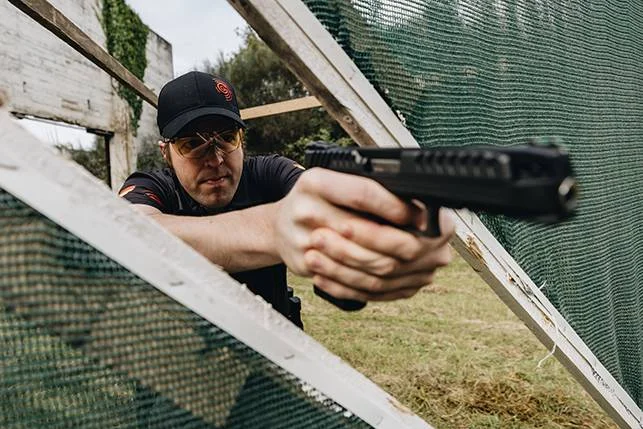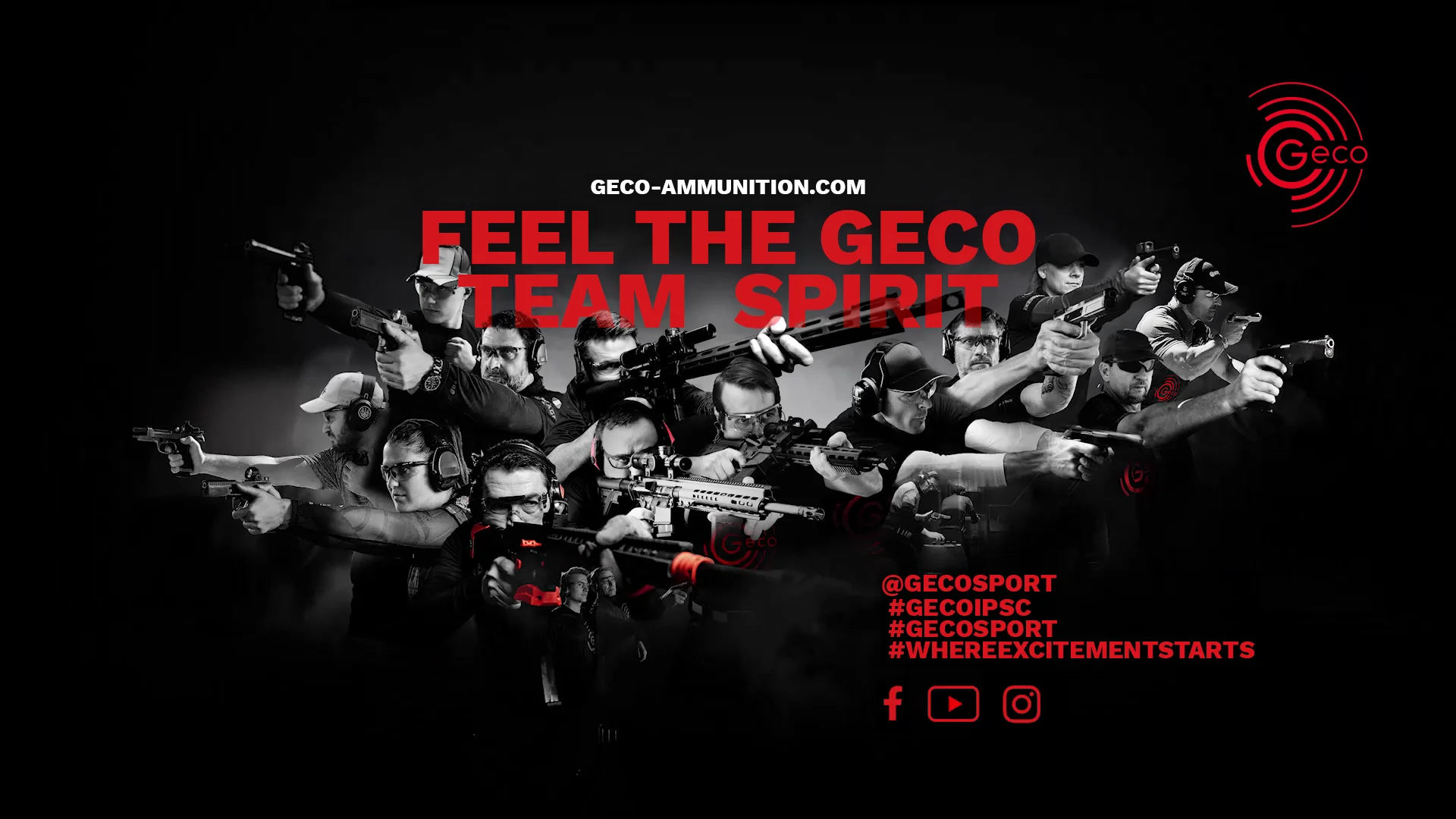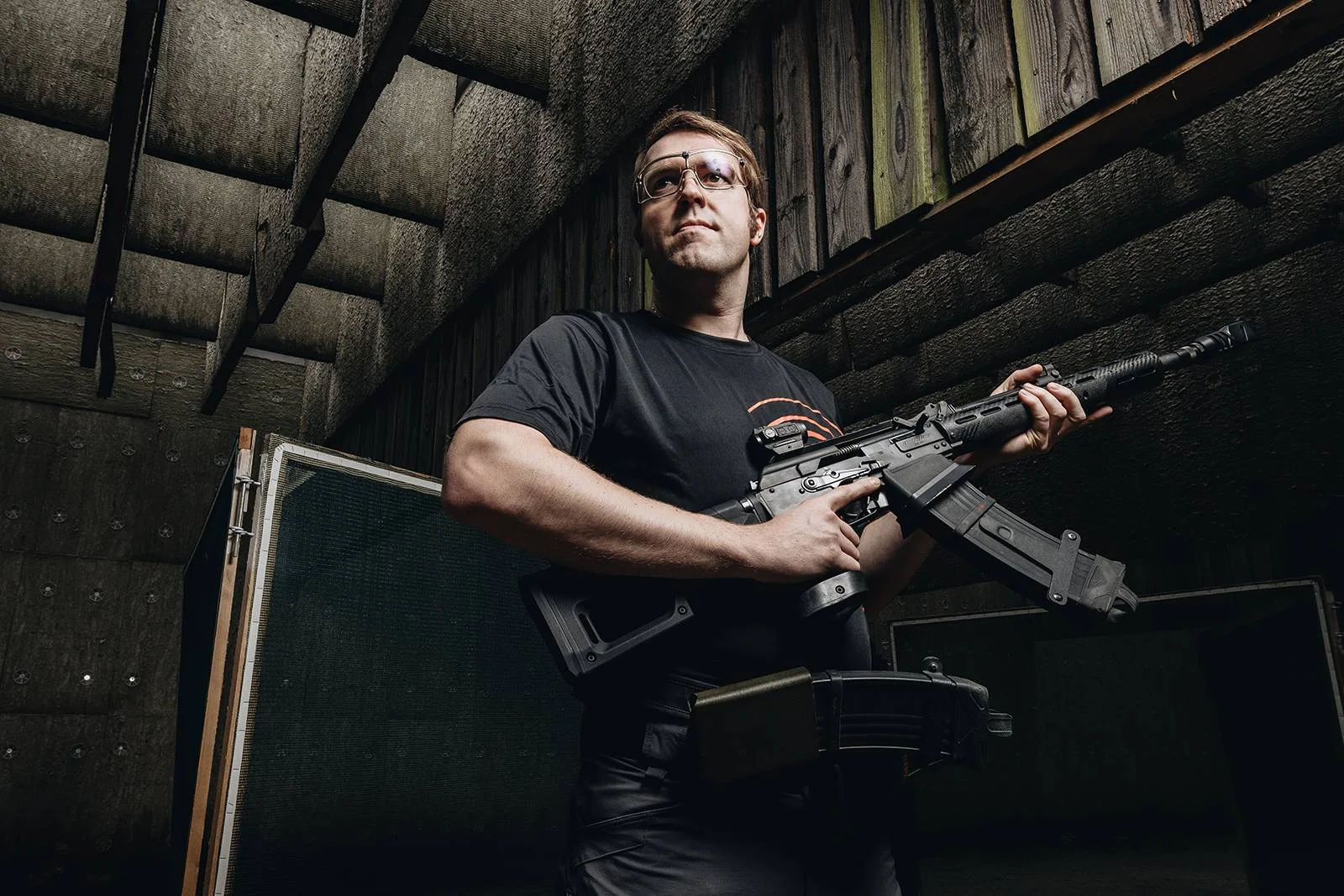
SHOOTING PORTRAIT:
STEFAN RUMPLER:
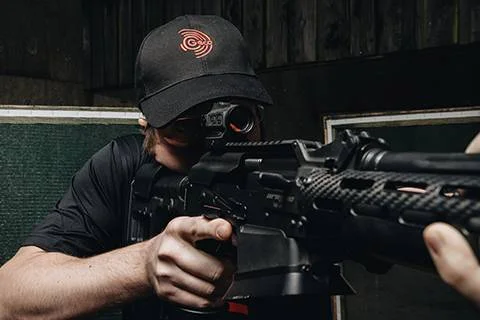
GECO IPSC Team Shooter
Stefan Rumpler, Germany
Stefan Rumpler (born 1992), Product Manager for air rifle and rimfire ammunition at GECO and a passionate IPSC shooter, delivered an impressive performance at the 4th IPSC World Shoot in Pattaya, Thailand from 4 to 9 December 2023. Out of almost 200 participants in the Open Overall class, he secured an incredible 4th place. Especially in the shoot-off, the decisive moment for the community, Stefan showed his skills and was only narrowly defeated 1:2 by world champion Scott Greene from the USA. Stefan Rumpler not only embodies an accomplished shooter, but also an engineer and product manager who lives his passion and expertise every day in the world of shooting sports. With an impressive portfolio of successes, a clear equipment preference and sound recommendations, he has earned his place at the top of the IPSC world. A real asset for GECO!
A MASTER OF HIS TRADE
With a career spanning over 10 years as an international Olympic rifle shooter, Stefan was looking for new challenges and found them in the diverse disciplines of IPSC. The dynamics and versatility of this sport fascinate him, and his impressive ranking at the World Championships emphasises his outstanding abilities. In the Open Division, Stefan opted for a special "race gun", a shotgun with box magazines, muzzle brake and optical sight. This enabled him to change magazines quickly and reload rapidly - an advantage that he used skilfully and which contributed to his impressive placing. Stefan's success at the World Championships goes beyond the placing; it demonstrates his dedication, skill and presence in the international IPSC sport. If nothing stops us, we can shoot pretty damn fast. The subsequent victory by team-mate Thomas Winter and my 2nd place in the shoot-off of the best eight put words into action and were the perfect end to these World Championships.
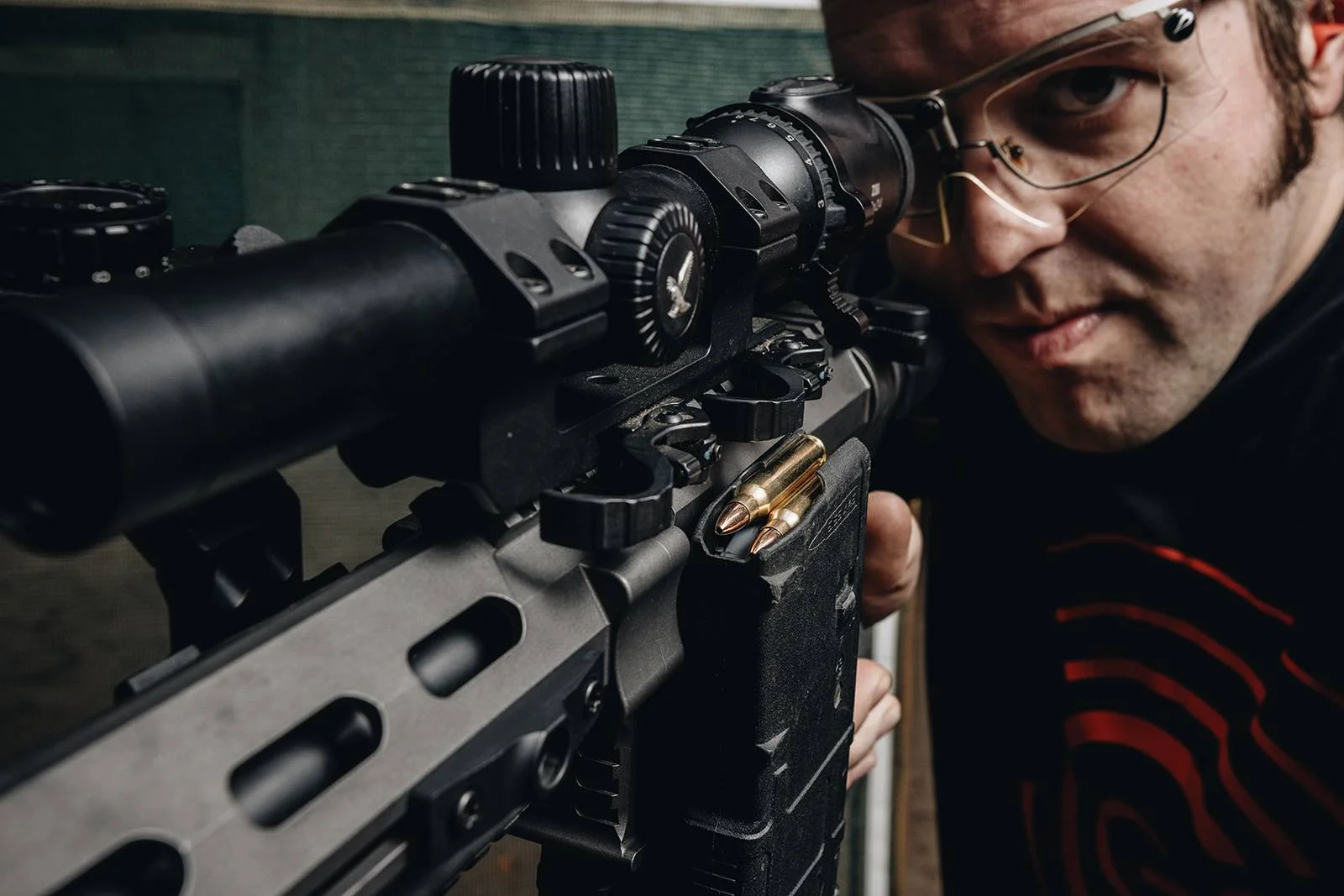
Reliable gear.
Stefan relies on GECO ammunition, in particular the GECO 9 mm Luger FMJ 124 grs. SX for his IPSC Production pistol. His equipment choices are equally precise, from the Laugo Arms Alien 500 pistol for IPSC Production to a tuned Armsan RS-S1 for IPSC shotgun Open Division and a DAR 15 SPR Custom .223 Rem for IPSC rifle Open Division. His equipment recommendations for any IPSC shooter include things like speedloaders/loading aids, magazine brushes and a shot timer.
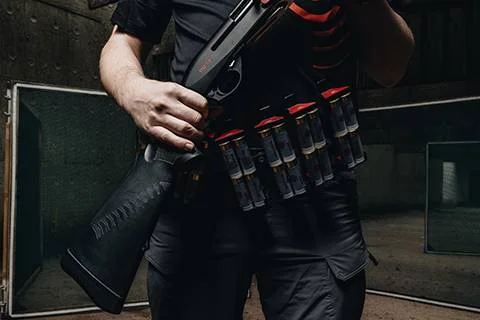
“My passion for shooting started early when I became a member of the privileged imperial and royal shooting club in Mittersill/Austria. Growing up in a family of firearms experts, with my father as a master gunsmith and my grandfather as head forester, I developed a deep connection to the world of firearms."
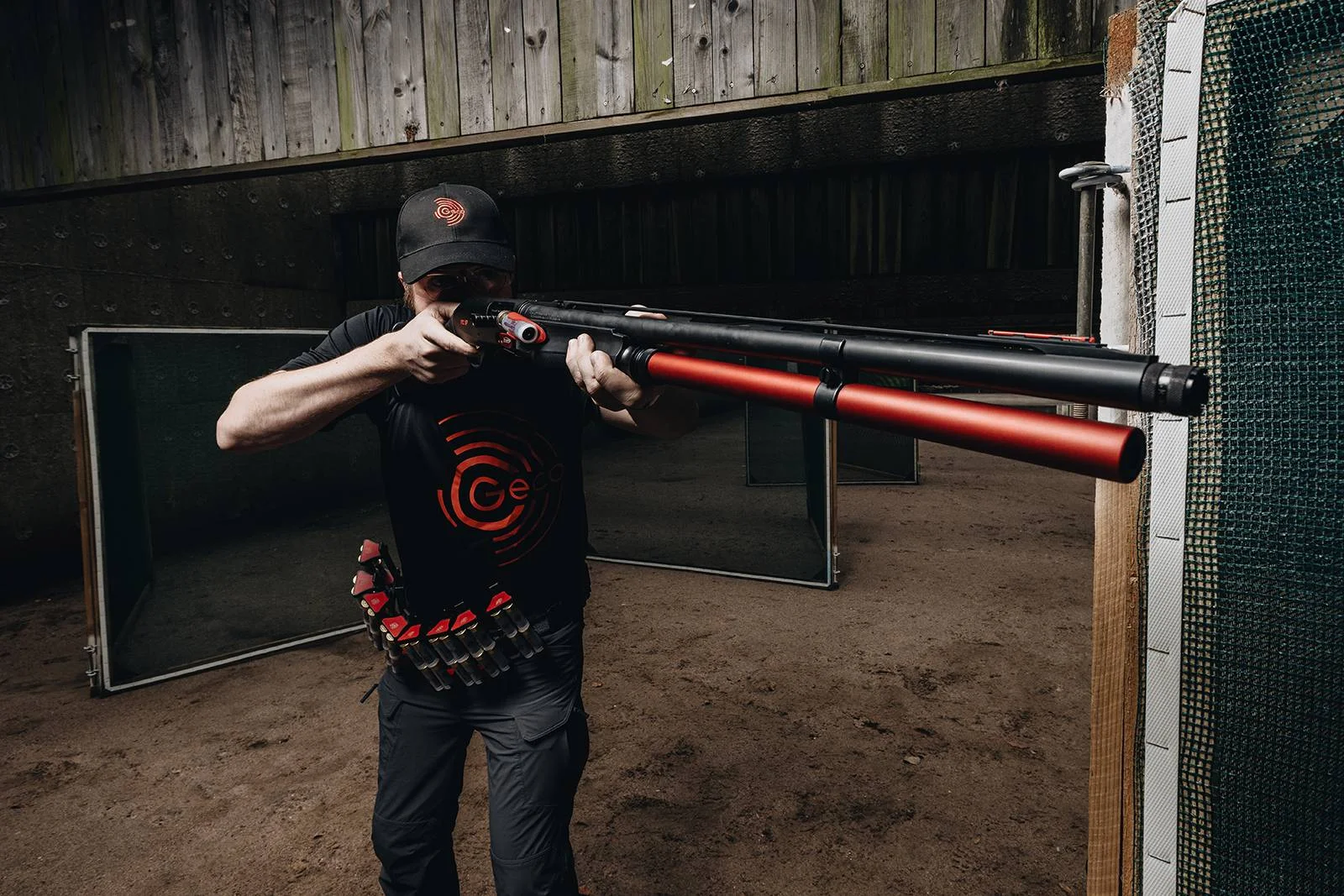
Quick-fire interview with Stefan Rumpler:
HOW DO YOU PREPARE DURING THE OFF-SEASON?
The off-season is always heralded by a break from shooting, i.e. no visits to the shooting range for approx. 2-4 weeks. During this time, you regenerate, clear your head and, if necessary, think about material changes or new purchases.
a. Does it include dry training?
After the "shooting break", more dry training with the various weapons begins.
b. If so, what do you emphasise in dry training and what areas are you working on? How much time do you invest in dry-fire training each week? (Handling the weapon, target acquisition, changing body positions, different shooting positions, etc.)
With the pistol, we train drawing from the holster, different starting positions, reloading, sight acquisition and changing targets or finding the different "hold points" on different target arrangements. The same specific aspects are trained with the long guns.
c. Is there also fitness training? If so, what kind? (endurance or cardio, strength endurance, maximum strength, speed, agility, coordination exercises, core stabilisation, etc.)?
As a young family man, I have little time for sport apart from shooting and dry training. That's why I keep fit by doing special strengthening exercises at home.
d. What about mental training? If so, which methods do you find most helpful? (visualisation techniques, breathing exercises, etc.)
I have learnt many mental techniques from my ISSF past and these also help me immensely in IPSC sport. For IPSC, however, I have mainly discovered the visualisation of movement sequences and the stage sequence for myself.
WHAT INVENTORY CHANGES ARE PLANNED AND WHEN?
a. Modifications to the gun or sights?
I will be trying out a new grip and a new buttstock on my Open shotgun for 2024, and a new bolt spring, a JP Silent Captured Buffer-Spring, will be used in my DAR rifle for 2024.
b. Straps or other equipment that you would like to change/improve?
No changes are planned here.
c. What is your favourite piece of equipment and why?
I "love" my customised orthoplastic in-ear hearing protectors, I've been using them since I was a teenager
d. What is your favourite gun and why?
My self-tuned Open shotgun is my current favourite weapon, but my Laugo Arms Alien pistol also has a special fascination for me as a weapons technician due to its special design
e. Do you have any special equipment or custom-built guns, and if so, which ones and why?
The muzzle brakes on my Open shotgun are my own design, as the original ones from Russia are no longer available.
f. Apart from guns, belts or the obvious, what piece of equipment do you think every IPSC shooter should have?
Speedloaders for quick and easy reloading of magazines, magazine brushes and a shot timer belong in every range bag for IPSC shooters
HOW DO YOU OBTAIN AND TEST YOUR AMMUNITION?
I only use factory-loaded cartridges in my guns.
a. When you load your own ammunition, which components are particularly important to you?
Factor, performance/accuracy, recoil
b. How much ammunition do you need per year for each gun?
I shoot a total of about 20,000 rounds per year.
c. Do you have training ammunition and special competition ammunition, or do you use one type for everything?
I have several different types of cartridges for each gun and several different production batches of the main types. I test the different batches from the guns and the best batches are used purely for competition. The rest is shot in training.
SEASON PLANNING
a. How many competitions do you take part in during a normal year?
Between 15 and 20 competitions a year
b. How many international trips have you planned for the coming year and where to?
As I was travelling a lot in 2023, I will take it a little easier in 2024. That means I only have one shotgun match in Poland in my sights. The rest will be contested exclusively in Germany.
c. What is your main competition for next year?
The German championships for rifle, shotgun, 3Gun and pistol
d. How will you prepare for this main competition?
Will there be rest periods, test competitions or other special phases until then?
There will be 1-3 "test competitions" for each weapon type before the respective German Championships.
SUCCESSES AND DEFEATS
5. what do you think are your strengths and weaknesses?
My mental strength and routine in "big" competitions count and my good and reliable precision are among my strengths. I just need to get a bit faster and gain more experience in "reading" and planning stage sequences.
6. what motivates you to take part in IPSC sport, or what is the special attraction?
I am fascinated by the combination of precision, speed, strategy and weapon handling in IPSC, as well as the fact that each stage is only completed once and is unique.
7. which was your most successful competition (last season) and why?
The World Championships with the Open shotgun in Thailand.
8. which was your worst competition and why?
2023 went well throughout and I didn't completely mess up a competition
PARTICIPATION IN A COMPETITION
9. what is your main focus during the course?
I look for key visual points that I can target specifically during the competition run so that I don't lose the course or my orientation. I also pay attention to the exact positioning of the individual target media and whether there are any special structures/obstacles that require a special type of impact.
10. how do you deal with being the first shooter at the first station? Suppose that were the case?
Basically, I don't mind, but I still need "tougher" mental tricks from time to time so that I don't lose the thread or over-pace myself
11. how long before the first competition shot do you arrive at the shooting range?
I try to be at the shooting range one hour before the first shot.
12. what diet do you follow or how do you stay fit during a competition?
I always have enough water, nuts, bananas, special sugar-free muesli bars and glucose with me for moments when I realise I need a little more "kick" at the end of a long competition day. I avoid big meals, sugar or too much fat.
13. do you have a formula/principle for approaching a competition? (Focus on speed or accuracy; do you sometimes push your own limits or step out of your comfort zone; do you prefer to be in a group with 'better shooters' or vice versa etc.)?
Basically, I pay attention to clean hits and try not to make any unnecessary movements etc. during a stage. This means that I usually "only" use 90-95% of my maximum speed, especially in long matches. But if I have the feeling that a certain stage suits me very well and the mental visualisation shortly before the start was perfect, then I just let it go and those are always very, very, very good runs.
14. which elements/designs of the courses do you like best and which less? (Long courses, short courses, moving targets, memory courses, field courses with lots of running, courses that require good accuracy, "spray and pray" courses, etc.).
With the rifle and pistol, I love stages that are a combination of fast target sequences and a few targets that require very precise shooting. With the shotgun, I love absolute speed stages with moving targets.
15. what piece of wisdom would you share with an IPSC novice or anyone interested in the sport?
Don't be afraid to gather information and quickly find a club that offers the desired disciplines. Especially as a newcomer, it is difficult to get an overview of what you "really" need and what is important. You should also not wait too long to attend a competition. Even just watching a competition can provide so much information, which is enormously helpful when it comes to making decisions about weapon class, equipment, etc.

